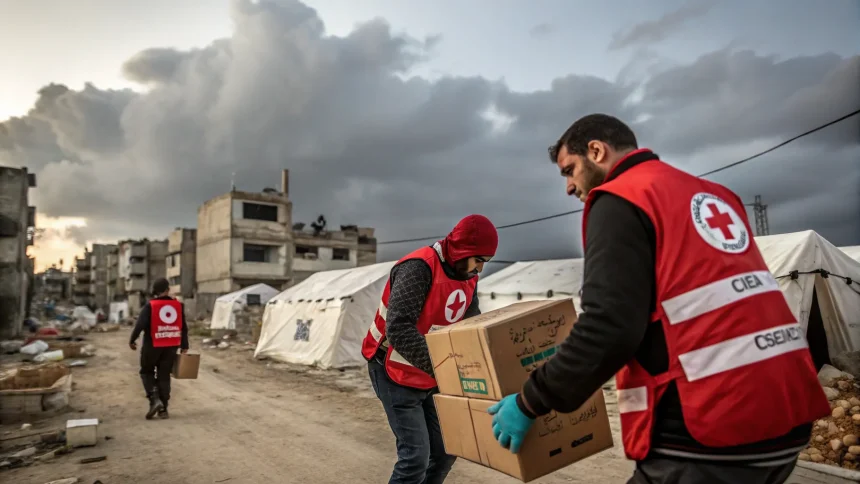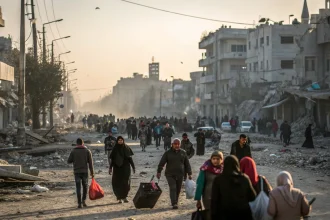Fabrizio Carboni, who leads the International Committee of the Red Cross (ICRC) regional delegation to the United States and Canada, has outlined significant obstacles facing humanitarian aid efforts in Gaza. As the situation continues to deteriorate, Carboni’s insights shed light on the complex realities of delivering assistance in the conflict zone.
The ICRC has been working to provide essential services amid increasing difficulties in accessing affected areas and distributing aid to civilians caught in the crisis. Carboni emphasized that humanitarian organizations face multiple barriers that limit their ability to respond effectively to growing needs.
Access Restrictions Hamper Relief Efforts
According to Carboni, one of the primary challenges is the severe restriction on access to Gaza. Checkpoints, security concerns, and damaged infrastructure have created bottlenecks that slow or prevent the delivery of critical supplies. These constraints have forced aid organizations to operate with limited resources in an environment where needs far outstrip available assistance.
“The movement of humanitarian goods and personnel remains highly restricted,” Carboni explained. He noted that these limitations affect everything from food and medical supplies to fuel needed for hospitals and water pumping stations.
The ICRC official described how aid convoys often face long delays at crossing points, with some supplies being rejected or requiring complex negotiation processes before being allowed to enter Gaza. These delays have life-or-death consequences for civilians in need of immediate assistance.
Safety Concerns for Aid Workers
Carboni highlighted the dangerous conditions facing humanitarian personnel working in Gaza. Aid workers must navigate active conflict zones, putting their safety at risk while trying to reach communities in need. The lack of consistent security guarantees has resulted in limited humanitarian presence in some of the hardest-hit areas.
The ICRC and other organizations have repeatedly called for all parties to respect international humanitarian law, which requires protection of civilians and humanitarian workers. Despite these appeals, Carboni indicated that aid operations continue to face significant security challenges.
“Humanitarian workers need safety guarantees to do their jobs effectively. Without these protections, our ability to reach those most in need is severely compromised.”
Scale of Needs Overwhelming Available Resources
The magnitude of humanitarian needs in Gaza has overwhelmed the capacity of aid organizations, according to Carboni. He described a situation where basic necessities like clean water, food, medicine, and shelter are in critically short supply.
The ICRC official outlined several key challenges:
- Hospitals operating beyond capacity with limited medical supplies
- Widespread water and sanitation issues increasing disease risk
- Food insecurity affecting large portions of the population
- Displacement of civilians creating additional humanitarian needs
Carboni stressed that the current level of aid entering Gaza falls far short of what is required to address these needs. He called for increased international support and funding to scale up humanitarian operations.
Coordination Challenges
Effective coordination between various humanitarian organizations, local authorities, and international bodies presents another significant challenge, according to Carboni. The complex political situation and multiple stakeholders involved in the Gaza crisis make coordinated action difficult.
The ICRC works alongside other humanitarian organizations, but Carboni noted that fragmented approaches sometimes result in gaps in coverage or duplication of efforts. He emphasized the need for improved coordination mechanisms to maximize the impact of limited resources.
Despite these obstacles, Carboni reaffirmed the ICRC’s commitment to humanitarian principles and continued efforts to provide assistance in Gaza. He stressed that humanitarian aid must reach all those in need, regardless of political considerations.
As the situation in Gaza continues to evolve, the challenges outlined by Carboni highlight the urgent need for improved humanitarian access, increased resources, and stronger international support to address the growing crisis. Without significant changes, civilians will continue to bear the brunt of both the conflict and the humanitarian shortfalls.









